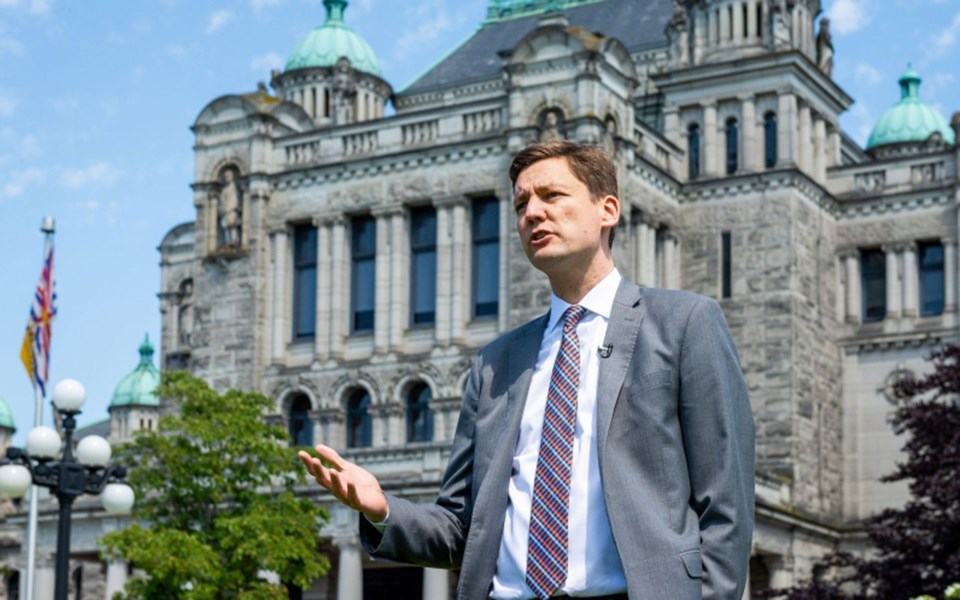She may be diminutive in stature, but B.C. Finance Minister Selina Robinson has developed a knack for delivering large budget surpluses in her short time on the job.
Robinson’s first budget came in at $1.3 billion in the black, even though that budget originally projected a deficit of nearly $10 billion.
Her second budget (the one for the current fiscal year) was also projected to incur a $5.4 billion deficit, but the latest quarterly update now projects a whopping (and all-time record high) surplus of $5.7 billion.
The current budget assumed there would be a decline in revenue in the neighborhood of about $1.7 billion. Instead, revenues are expected to increase by a huge amount from last year ― more than $12 billion.
I wrote a column back in February suggesting Robinson’s current budget was too full of pessimism when it came to that anticipated drop in revenues, but little did I – or anyone else, for that matter – expect the gap between projections and reality to be so big.
The major reason for the big jump is the federal government’s recalculations of personal and corporate income tax filings, which are completed well past the time the budget is put together.
It now looks like personal income tax revenue will be $4.2 billion higher than first thought, and corporate income tax revenue will be $4.6 billion higher.
These are huge numbers, and they suggest that a lot of British Columbian individuals as well as many companies and corporations are actually doing pretty good when it comes to earning high wages and corporate profits.
While the average person is not enjoying pay raises that help them keep pace with the rising cost of living, it seems the upper levels of society are doing just fine, thank you.
Which brings me to what to do with that out-of-nowhere $5.7 billion surplus (which could approach $10 billion if various contingency funds are not dipped into).
By law, any money in the budget that is not spent by the end of the fiscal year is automatically applied to the debt.
The BC Liberals learned a painful lesson on the eve of the 2017 election when that government opted to put a $2.9 billion surplus against the debt rather than spend it on programs or services or rebates.
One must wonder whether, if they had been more politically deft and had spent that money on people instead of debt retirement, the 2017 election result would have been much more favorable to them.
You can be sure the BC NDP government is mindful of its predecessor’s miscue on this front. Look for Premier David Eby and his cabinet ministers to continue with a spate of new announcements of funding of various goodies.
I’d be surprised if they take the form of program funding, as that simply adds more spending to the base total of government spending. Rather, one-time payments like rebates and such are more likely.
In any event, the government is awash in cash like never before. Expect much of it to flow out the door over the next four months (will more “Eby bucks” be coming your way?)
There has been speculation that Eby will replace Robinson as finance minister when he unveils his cabinet on Dec. 7. Given her unprecedented track record, such a move would be somewhat astonishing.
However, it’s clear her new leader wants to spend his way to gain the hearts of voters. We shall see whether Robinson is in step with the new boss.
Keith Baldrey is chief political reporter for Global BC.




